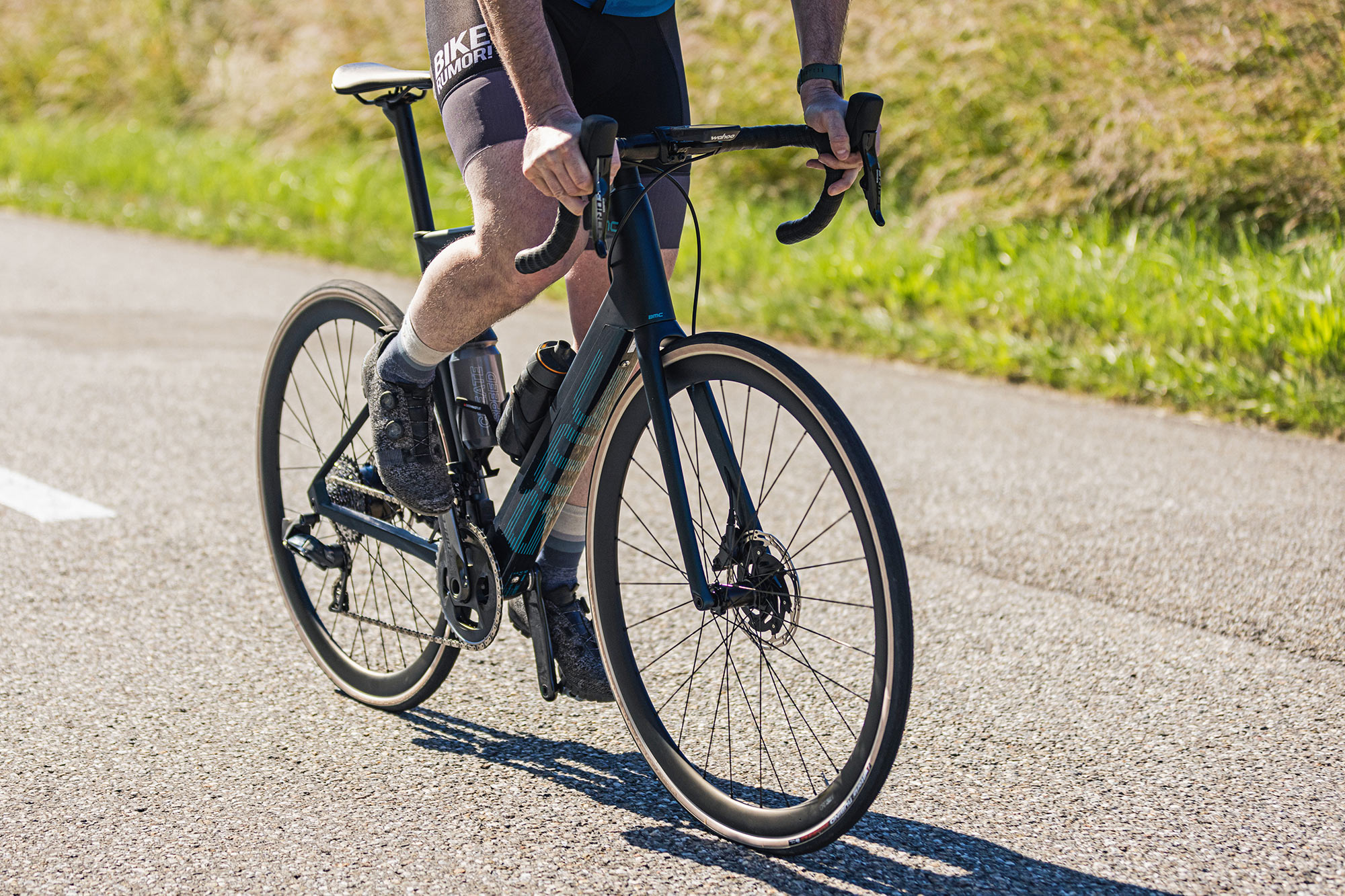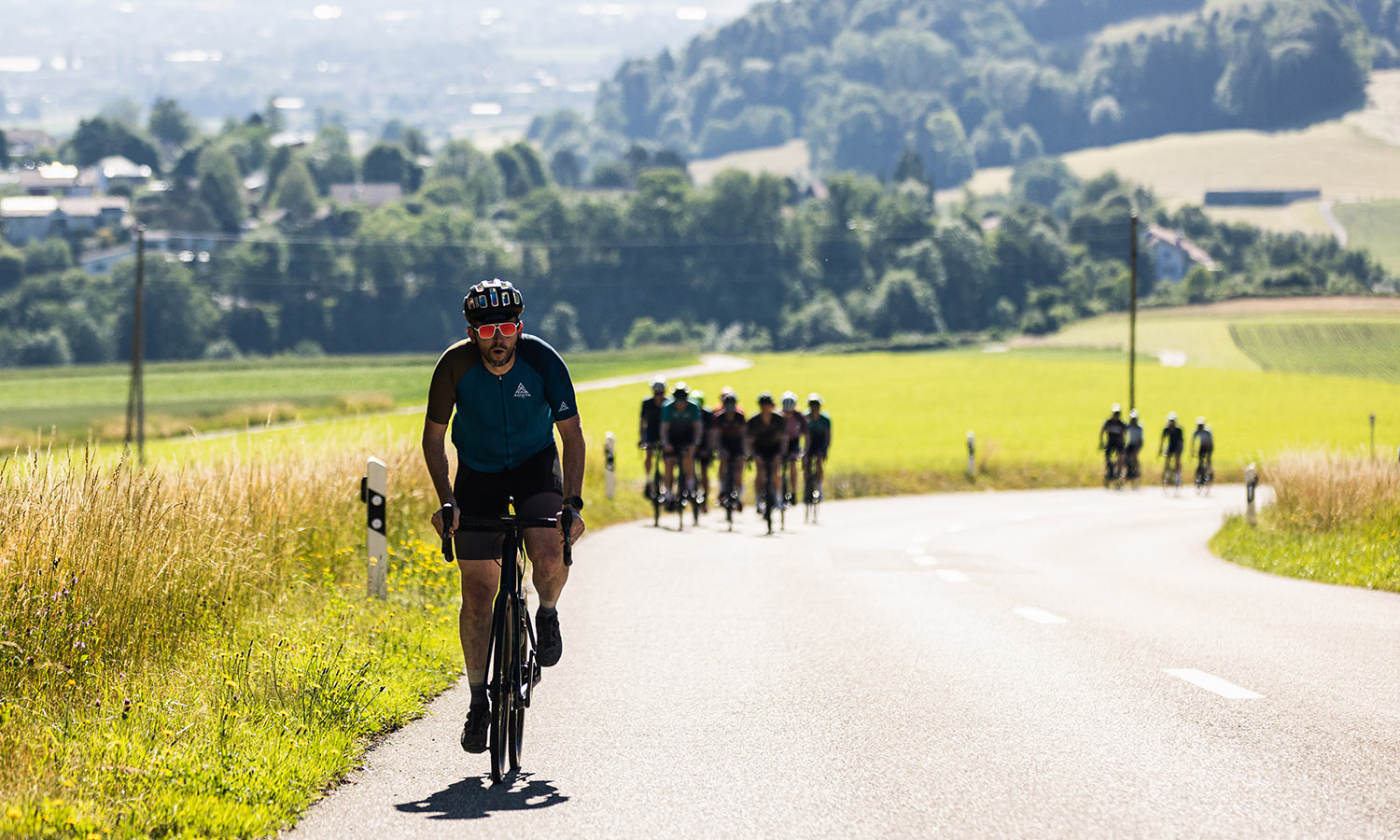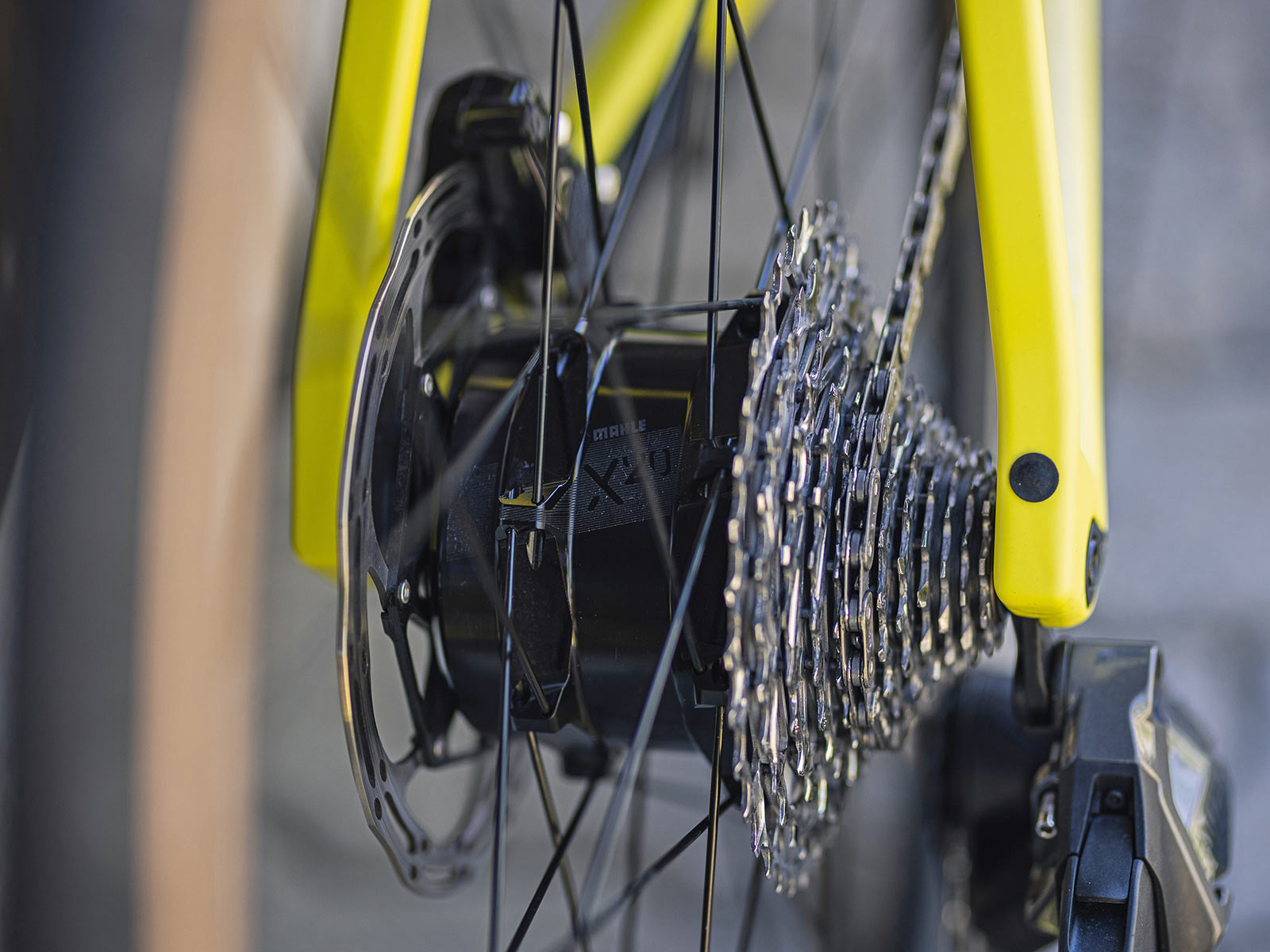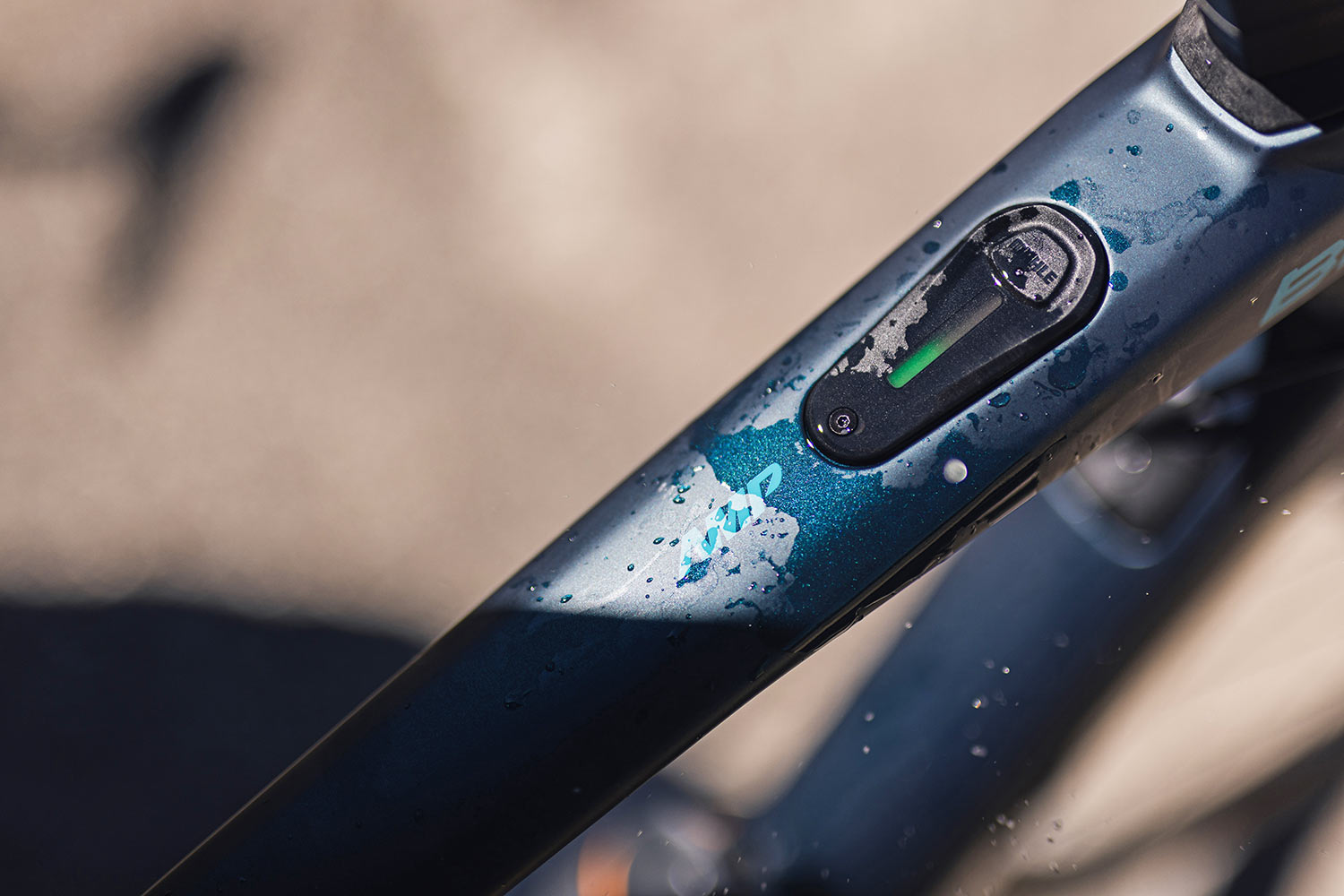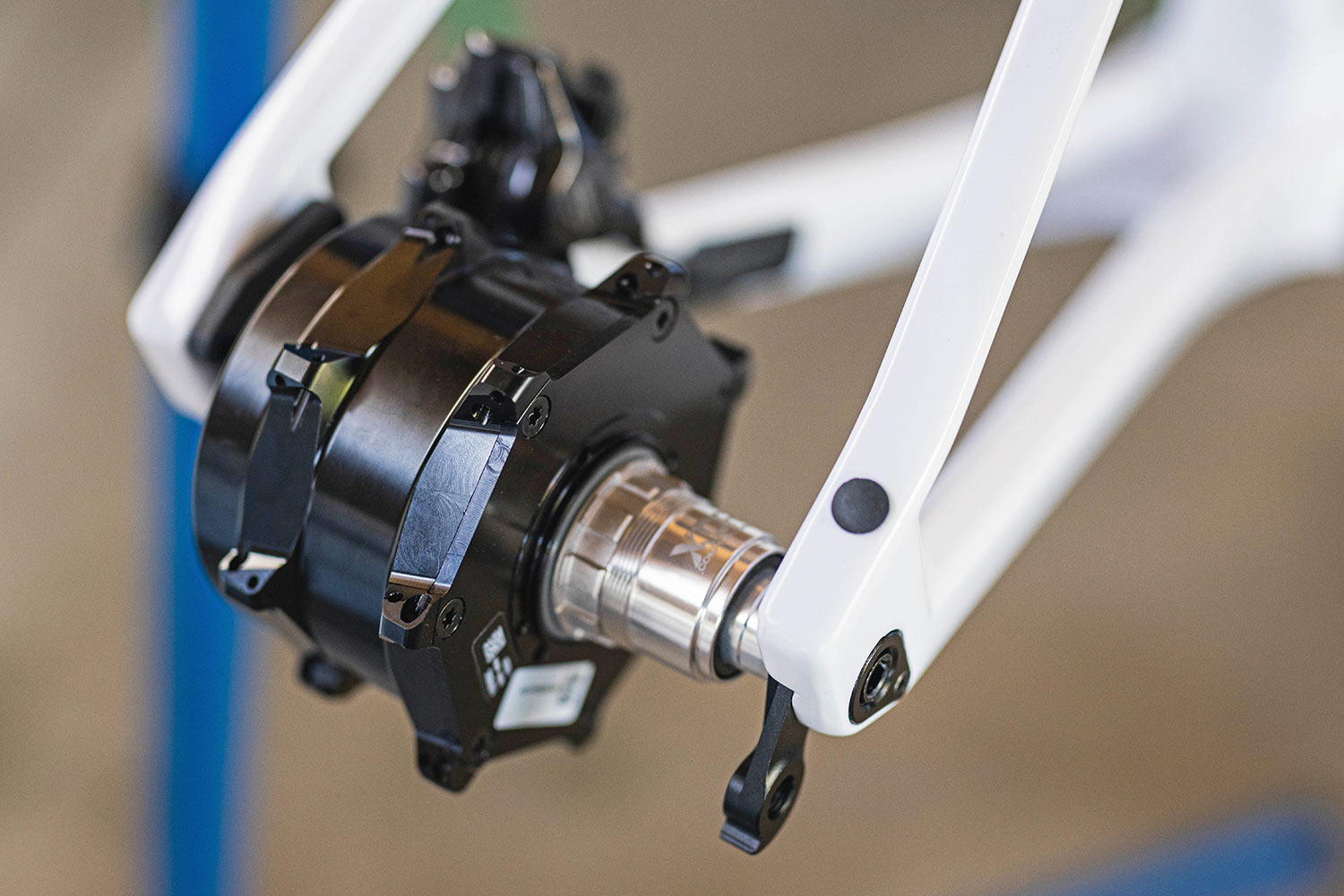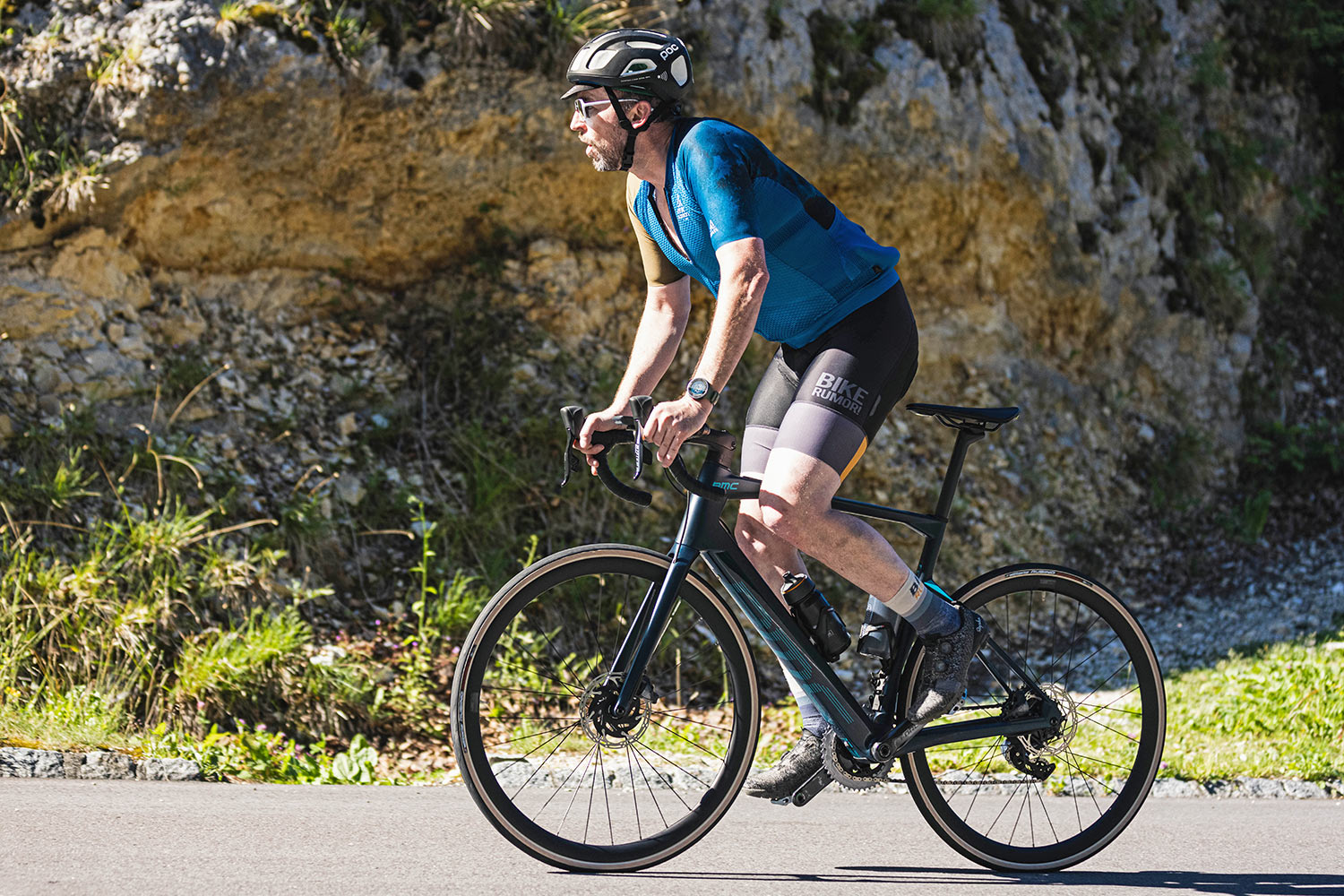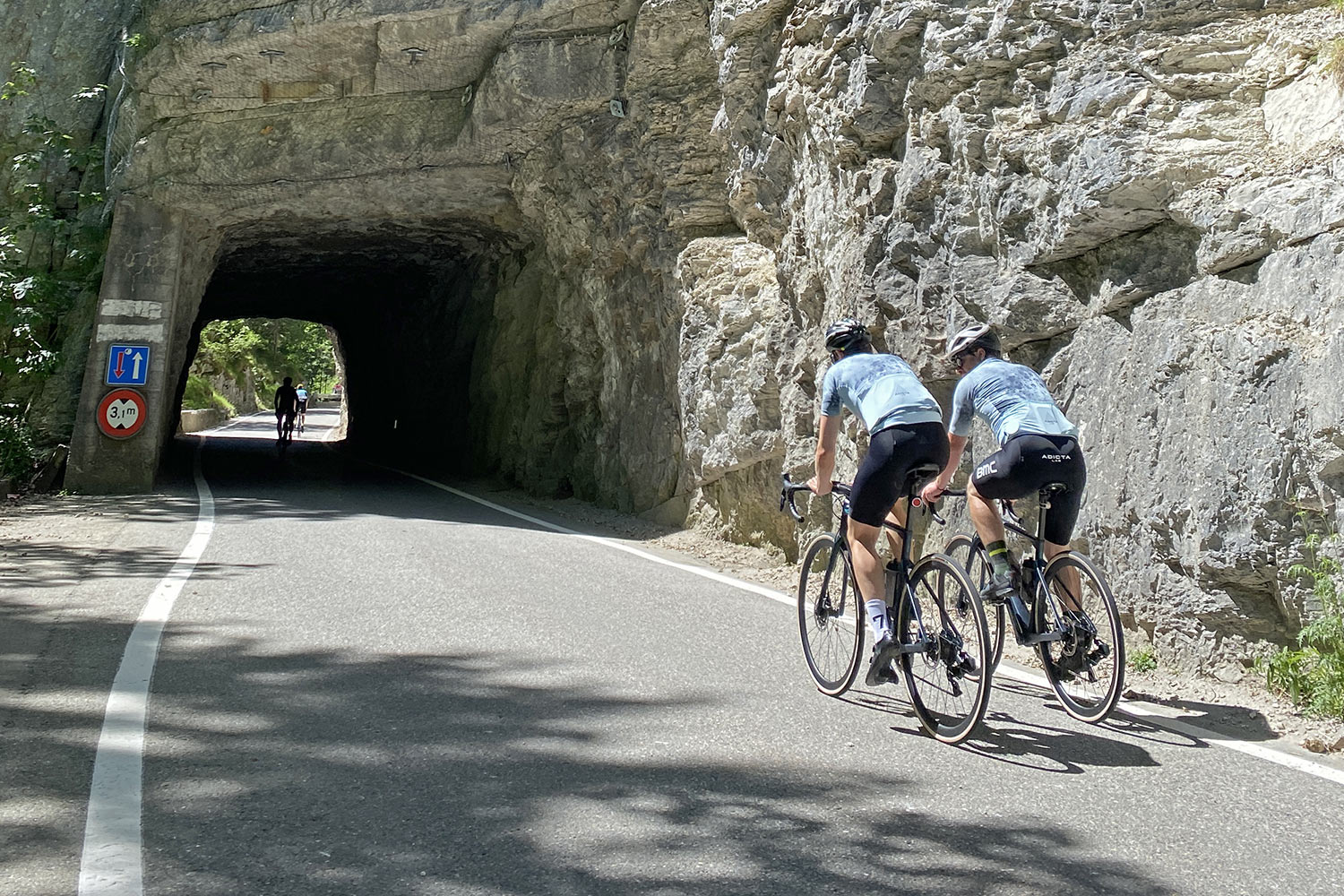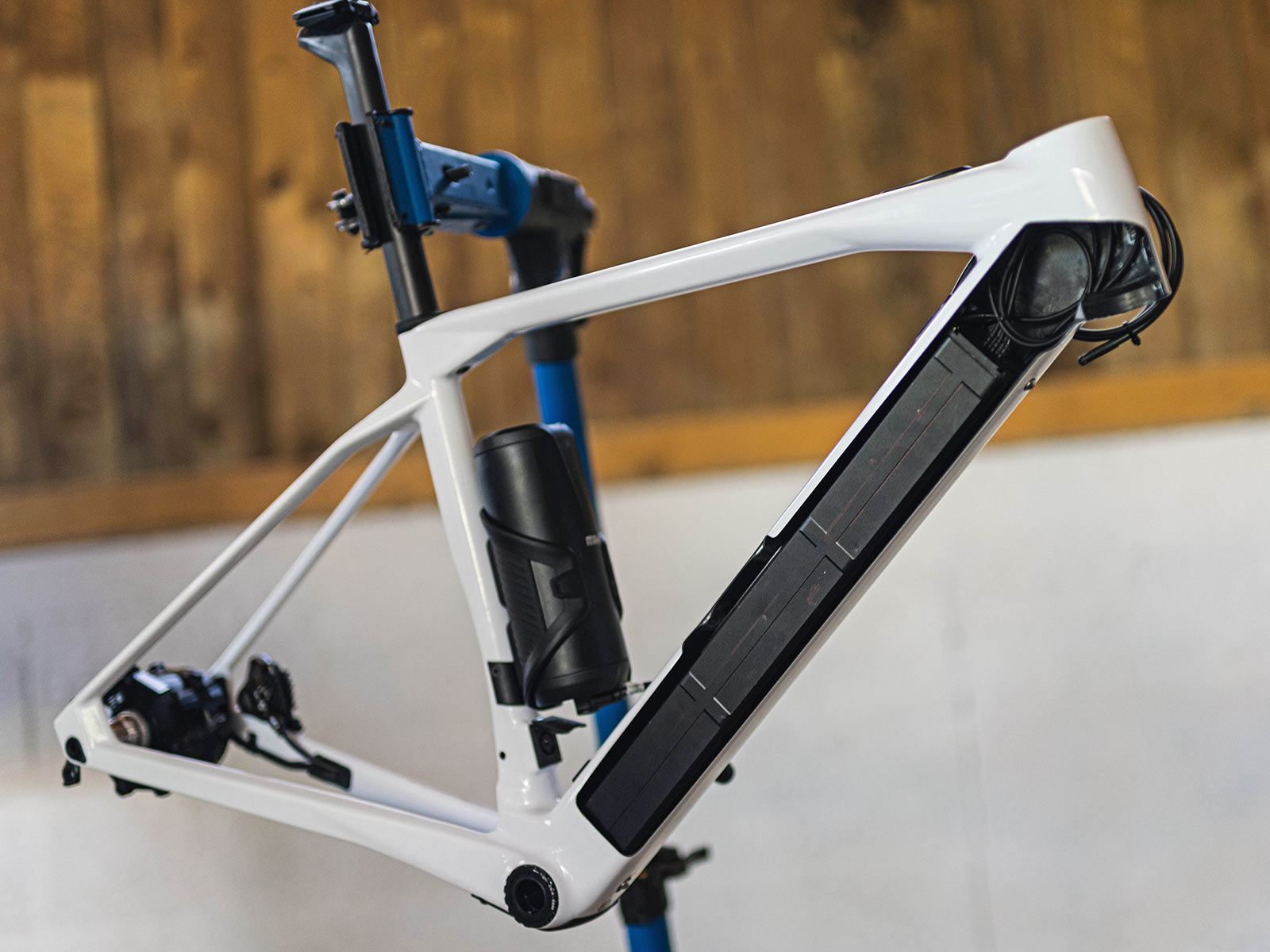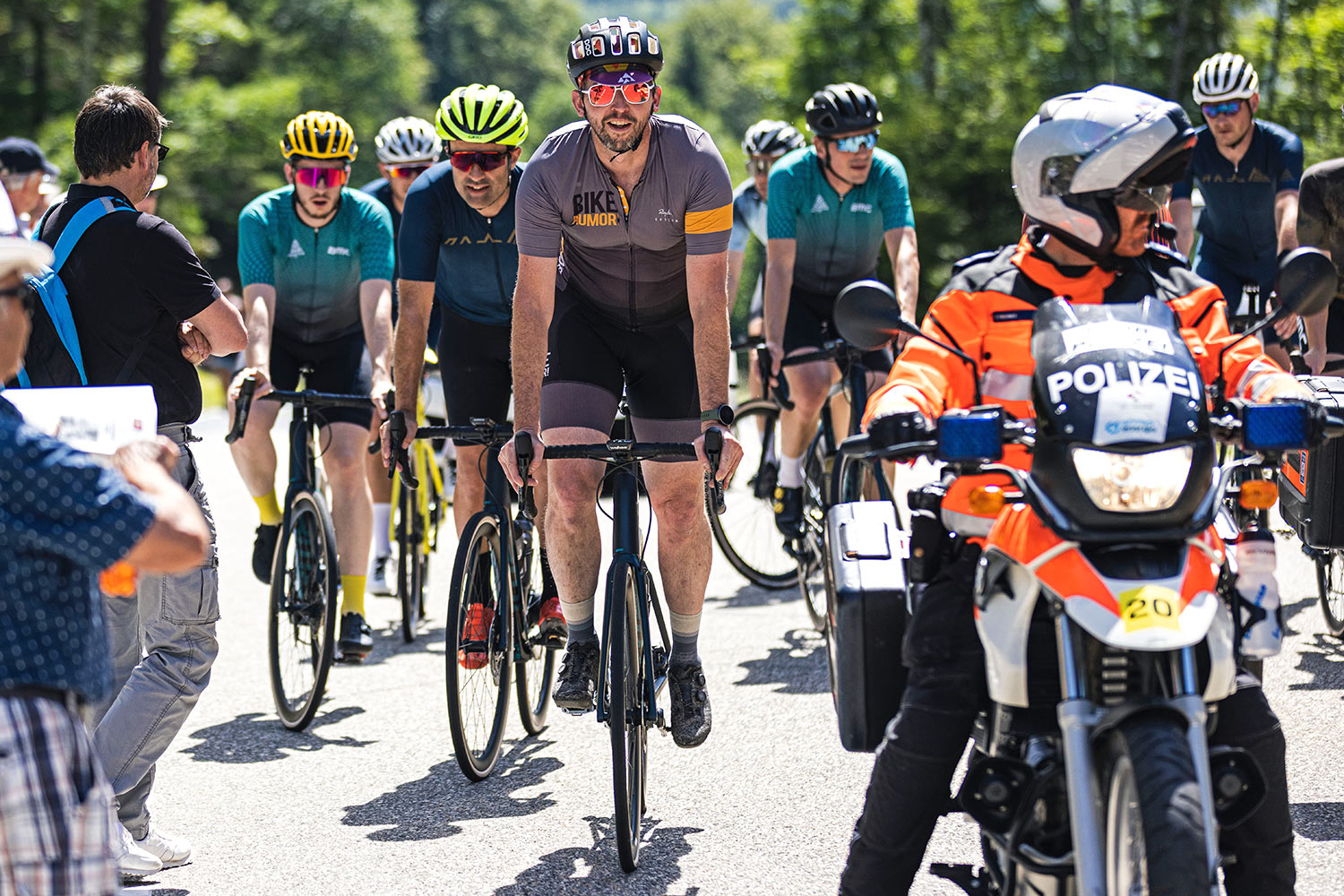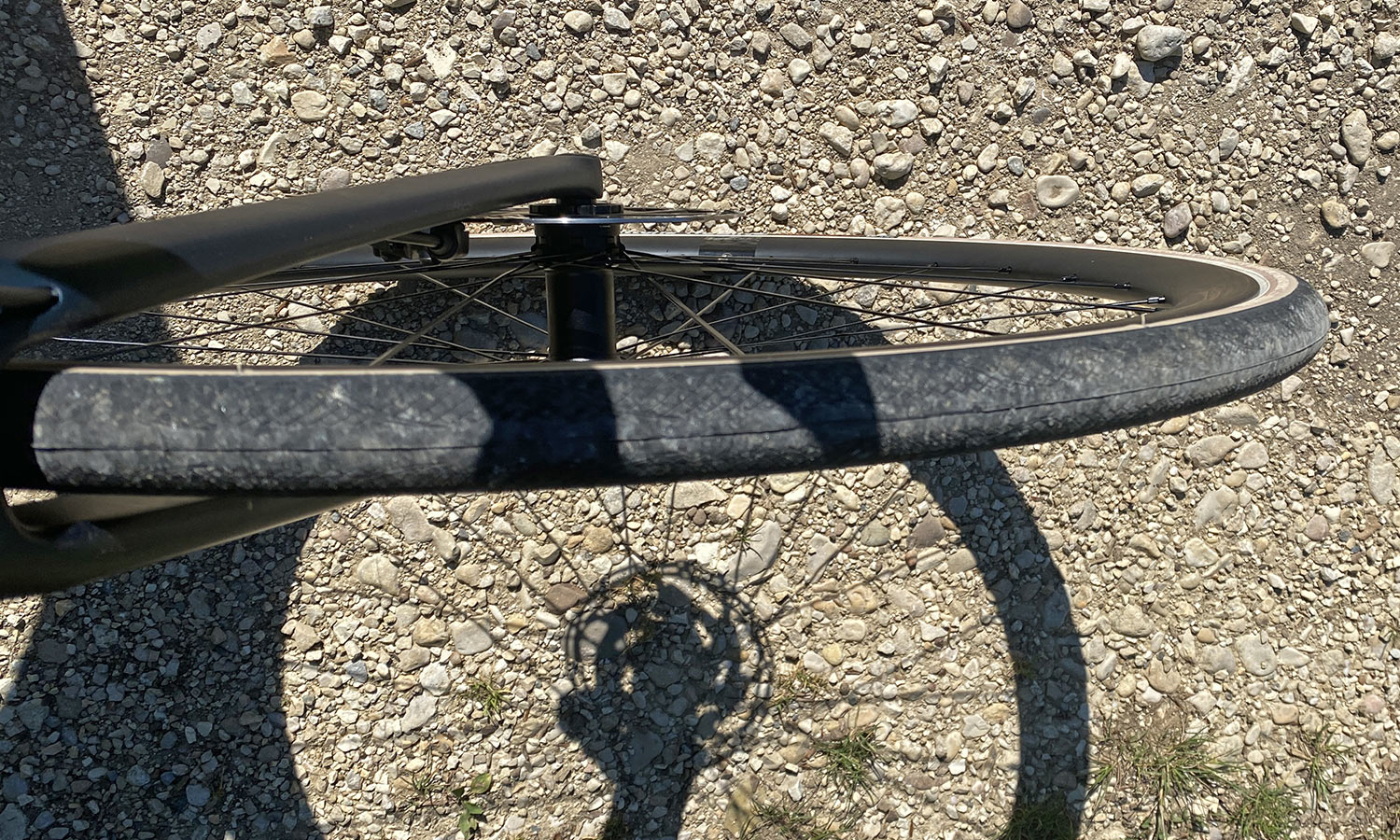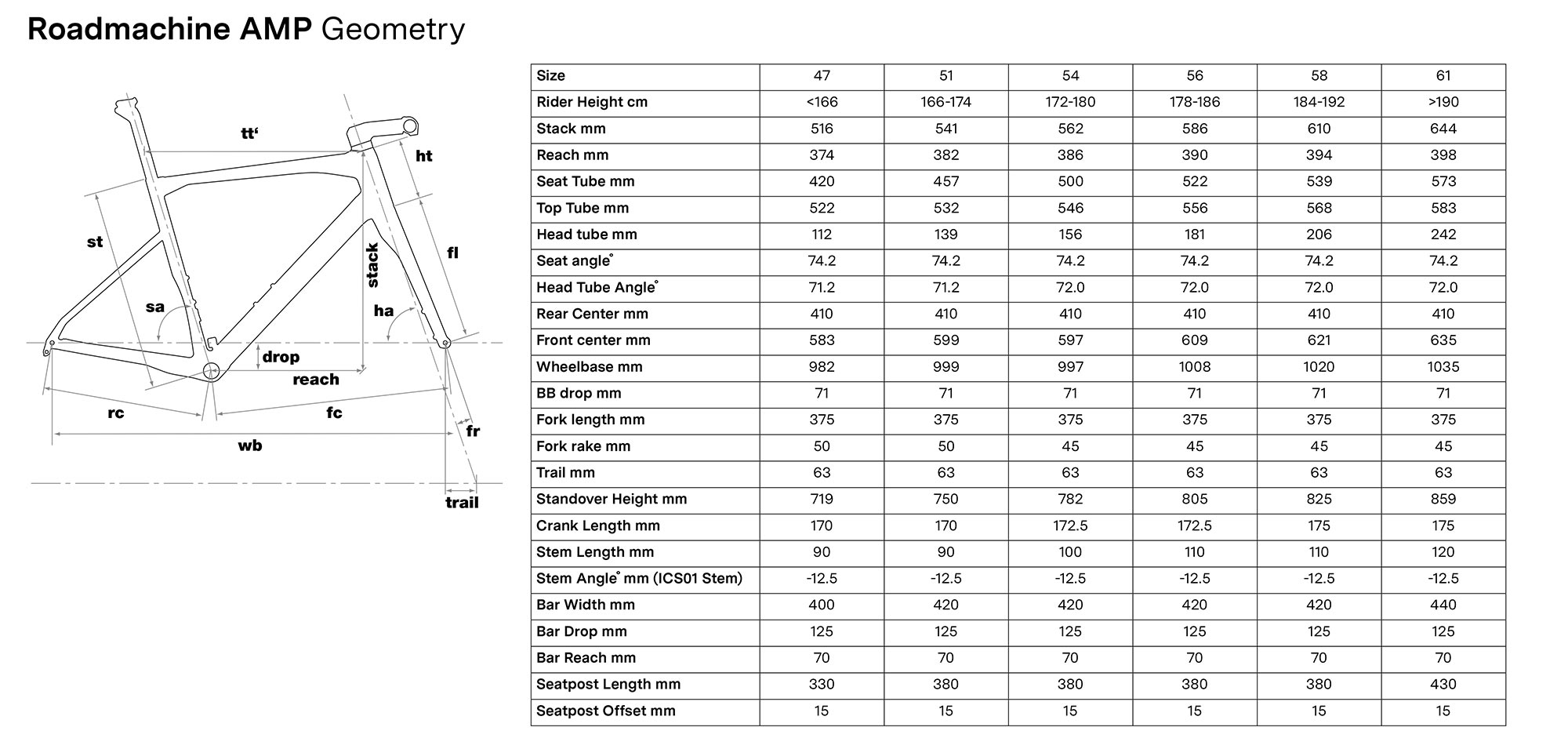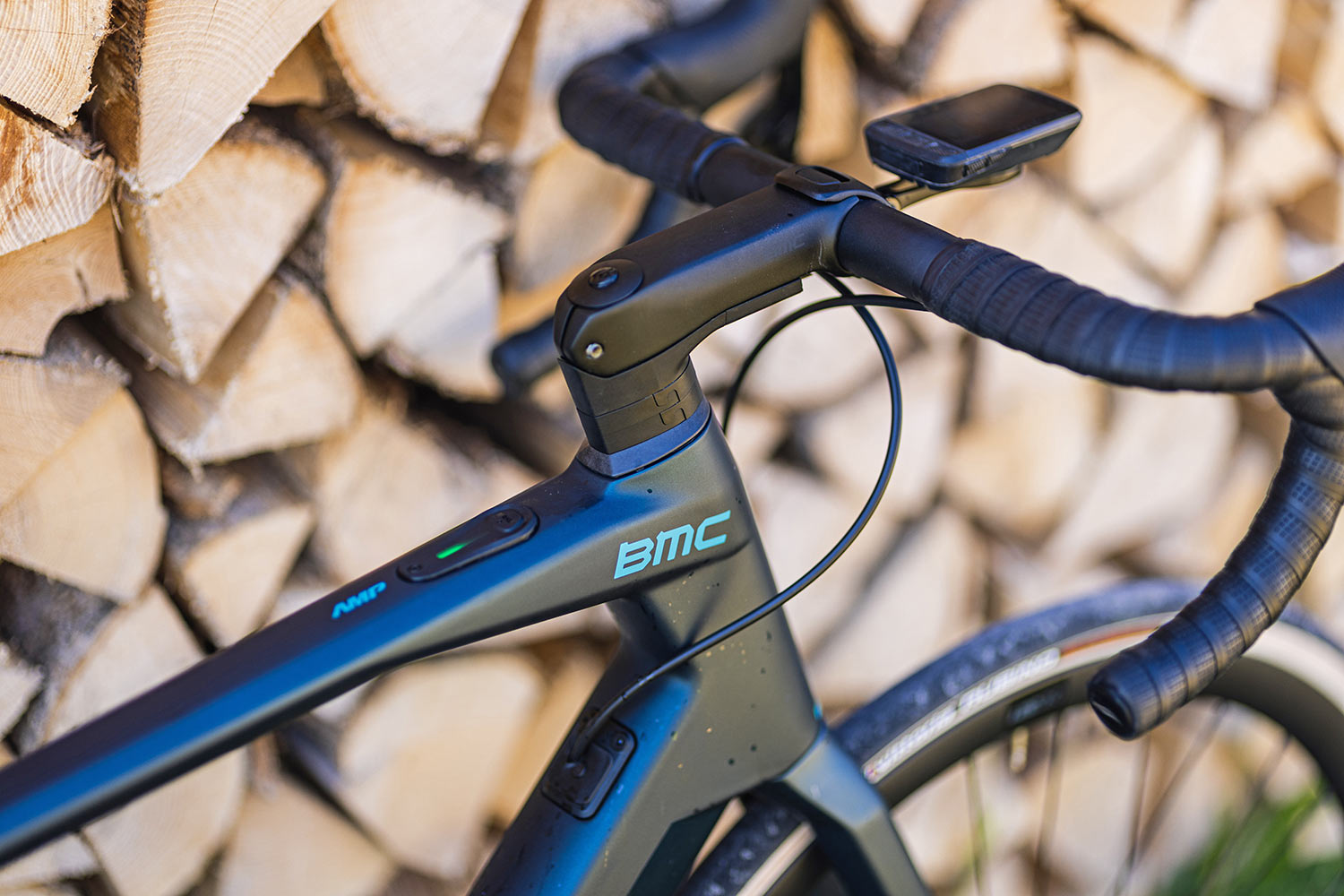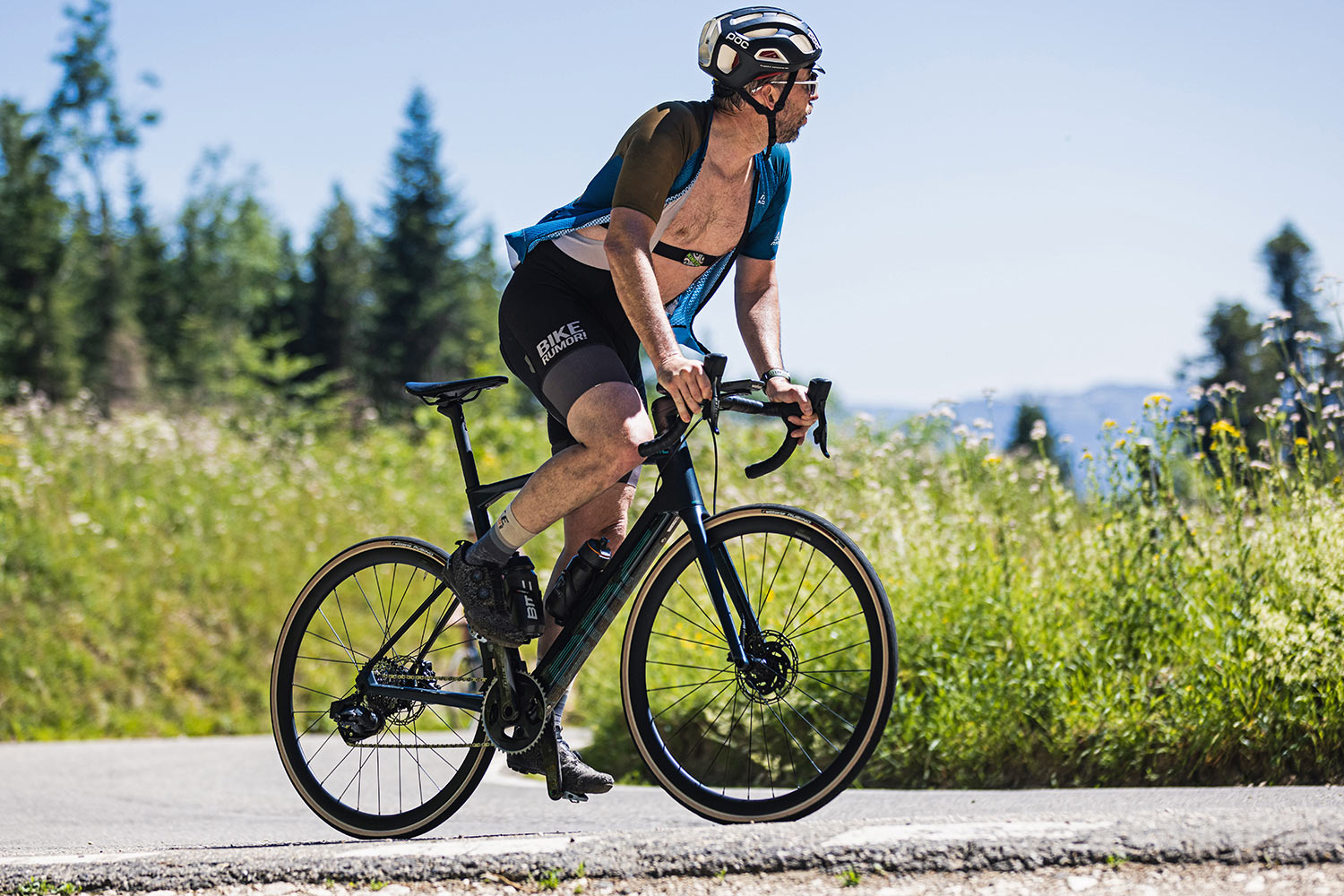BMC are heading full steam into performance road e-bikes with an all-new Roadmachine AMP powered by the lightweight and smooth new Mahle X20 hub motor. Building on the endurance versatility of their popular Roadmachine carbon road bike, this AMPed e-bike iteration gets a remarkably similar ride, just with the edge taken off the climbs thanks to neat integration of Mahle’s “lightest e-bike drive system on the market”…
BMC Roadmachine AMP road e-bike
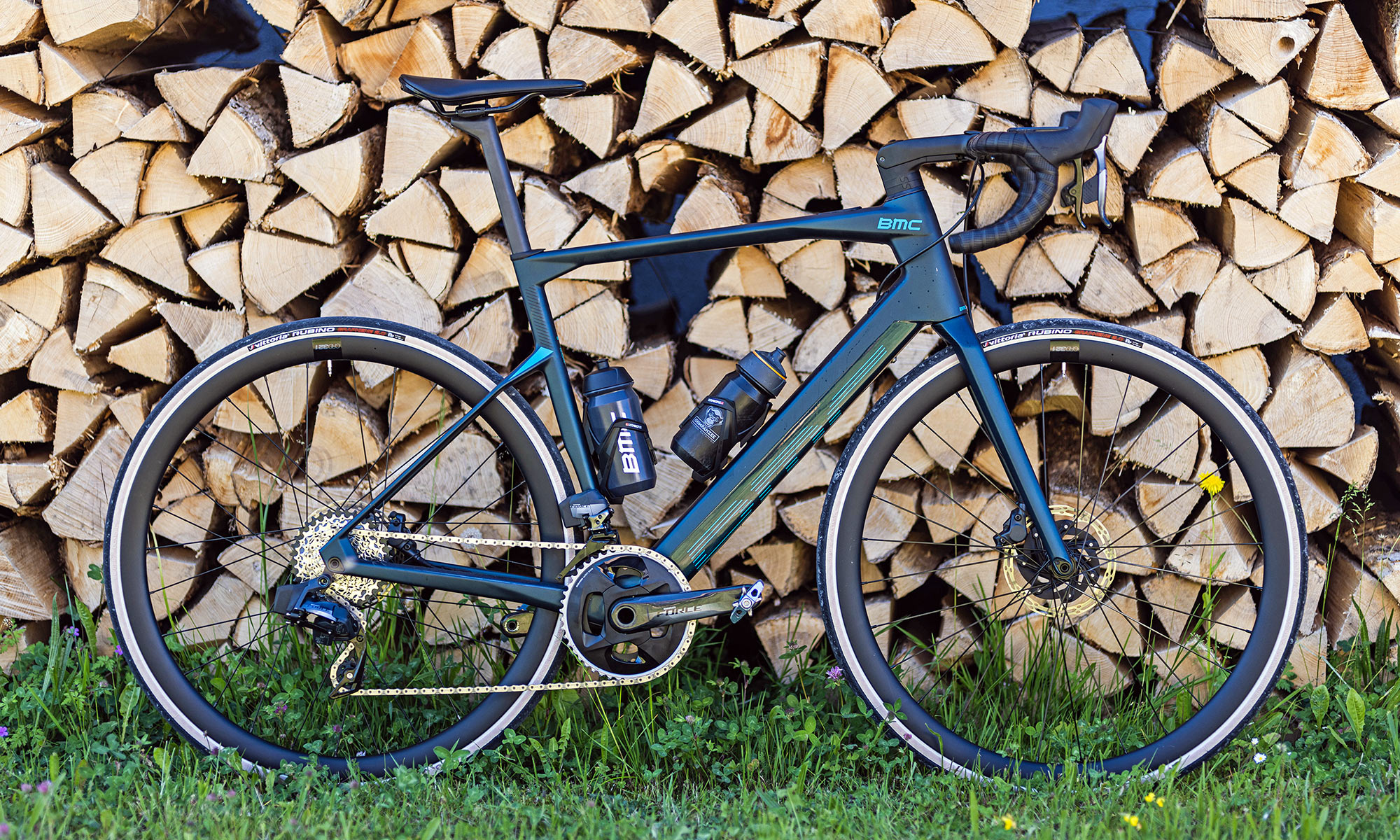
The new Roadmachine AMP is the latest e-road bike to feature the new lighter, smarter & more powerful Mahle (formerly ebikemotion) X20 hub motor and internal battery tech. With this increasingly compact e-bike powertrain system and sleek integration overall, not only is the BMC Roadmachine AMP one of the stealthiest e-bikes available, it also rides more like a regular road bike.
BMC already dipped their toes into e-road three summers ago with the adapted Alpenchallenge AMP. But that e-bike was more of a crossover all-road to gravel machine, leaning on a powerful and quite heavy Shimano eMTB motor and battery. It was and still is a capable e-bike, but it doesn’t really recreate a natural road riding feel.
And that’s where the new Roadmachine AMP stands out.
Mahle X20 e-bike details
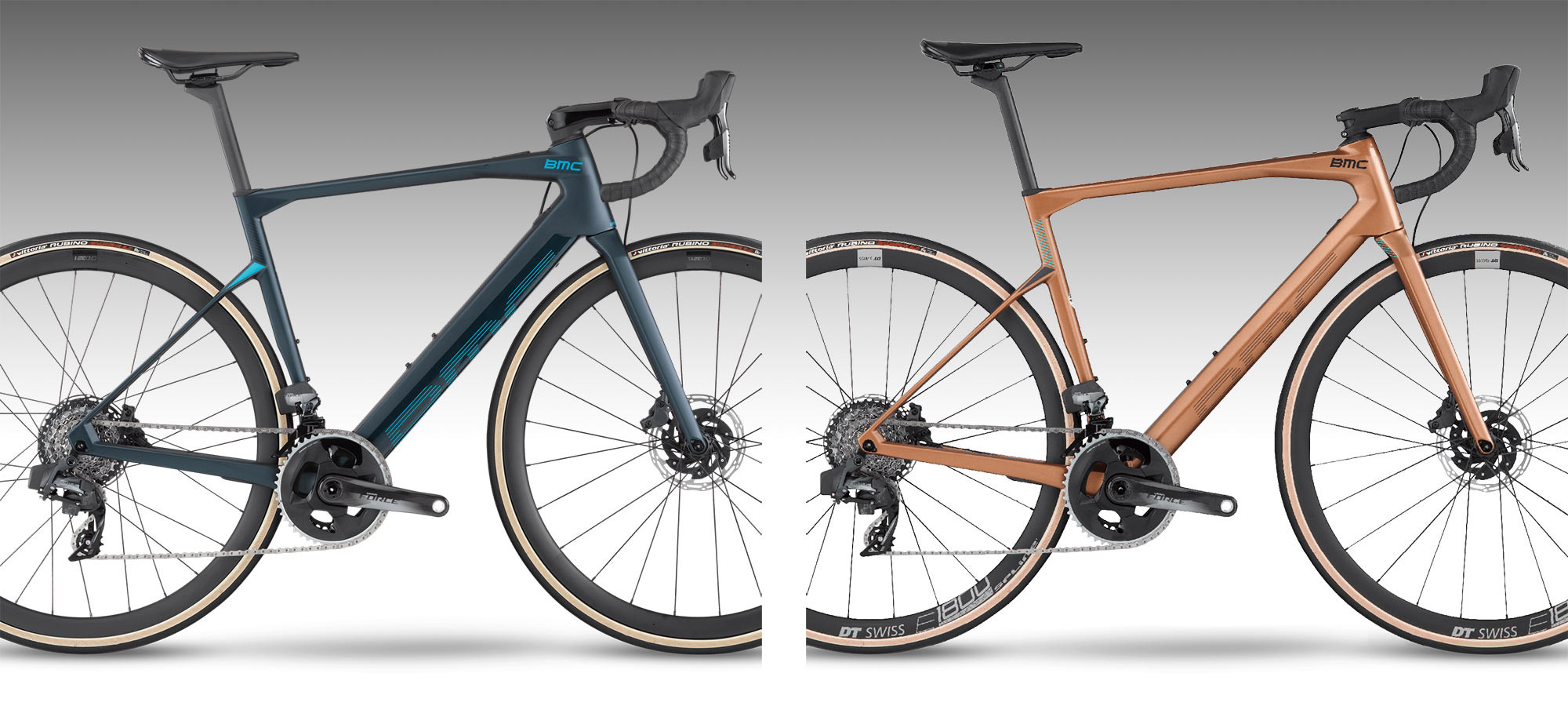
First off, the new BMC Roadmachine AMP looks almost exactly the same as the regular pedal-by-yourself Roadmachine. All the same signature angular BMC aero tube shaping is there, only the downtube is a bit bigger in diameter – but really not by much.
The secret is of course putting the motor in the rear hub, and a small diameter battery inside the oversized downtube. Even then, BMC opted for the bigger of the two new Mahle internal batteries for 350Wh of juice (vs. 250Wh) to get extra range.
All you really see from the outside besides the AMP name on the toptube is the simple LED-backlit Mahle power button & support-level indicator.
The Mahle X20 system gives a standard 250W pedal assist, with a max rear-wheel torque comparable to 55Nm from a mid-drive motor. (Real assist of 25Nm is delivered directly at the hub without regular torque losses in transmission.) With a 350Wh battery, BMC claims riders can get up to 140km distance or 3000m climbing support in the most Eco mode.
Realistic range is likely closer to 100km and 2000m of elevation in a mix of mid-level support modes, although the smart Mahle management system does a good job of making that last 20% of its battery last to get you home with assist when you need it. As with all e-bikes, heavier riders, steeper sustained climbs, and turbo assist mode will cut into overall range.
Also, we’ve only ridden the 25km/hr limited EU version where you really only get pedal assist once you start climbing more than 1% grades (flatter and you easily can spin past the support limit.) Presumably, the US 20mph limit version will continue to offer support even on the flats where your average speed would often be a bit below 20mph, thus having a greater increased on your overall average speed, but also will eat more into your total pedal-assist range if you aren’t careful.
But you can also add Mahle’s new optional 173Wh Range Extender external battery to go 50% further. It is smaller, lighter & much cheaper than the extender I used with their X35+ system last year. But that also means it can use a regular heavy-duty bottle cage instead of something proprietary.
BMC says it takes 3.5 hours to recharge the new Roadmachine AMP from a totally dead battery, but just 2hr from 20% remaining.
Roadmachine geometry
One really interesting feature of the BMC Roadmachine AMP is that it shares the exact same geometry as the regular Roadmachine. Since there are no changes from bottom bracket to dropouts, the geo and handling are completely untouched. You get the same proven endurance road ride of the Roadmachine, just with a boost up the climbs.
With that you also get the same clearance for up to 33mm wide (actual measured) tires for all-road versatility, comfort & control. Plus the same endurance Tuned Compliance Concept with dropped, flexing seatstays, D-shaped seatpost, and small tapered fork legs for a fast but forgiving ride quality.
Tech details
The Roadmachine AMP comes in a wide six size range (47-61cm) each with room for two full-sized water bottles and the big 350Wh battery inside the downtube. The e-bikes feature flat mount disc brakes and 12mm thru-axles, and unique to BMC this Roadmachine AMP custom molds in the QR connector for the Mahle hub motor so it is super simple to remove & replace the rear wheel if you need to fix a flat.
The e-bikes feature conventional modular internal cable routing that enters through a port in the downtube – not fully internal.
BMC does not include a display since the Mahle system can be synced with almost any ANT+ cycling computer to show support levels & battery power. You can also have your dealer shop install a Mahle dropbar mode switch if needed, it’s possible to wire lighting directly into the Mahle system, or you could even downsize to the 750g lighter 250Wh internal battery down the road, if so desired.
BMC Roadmachine AMP – Pricing, options & availability
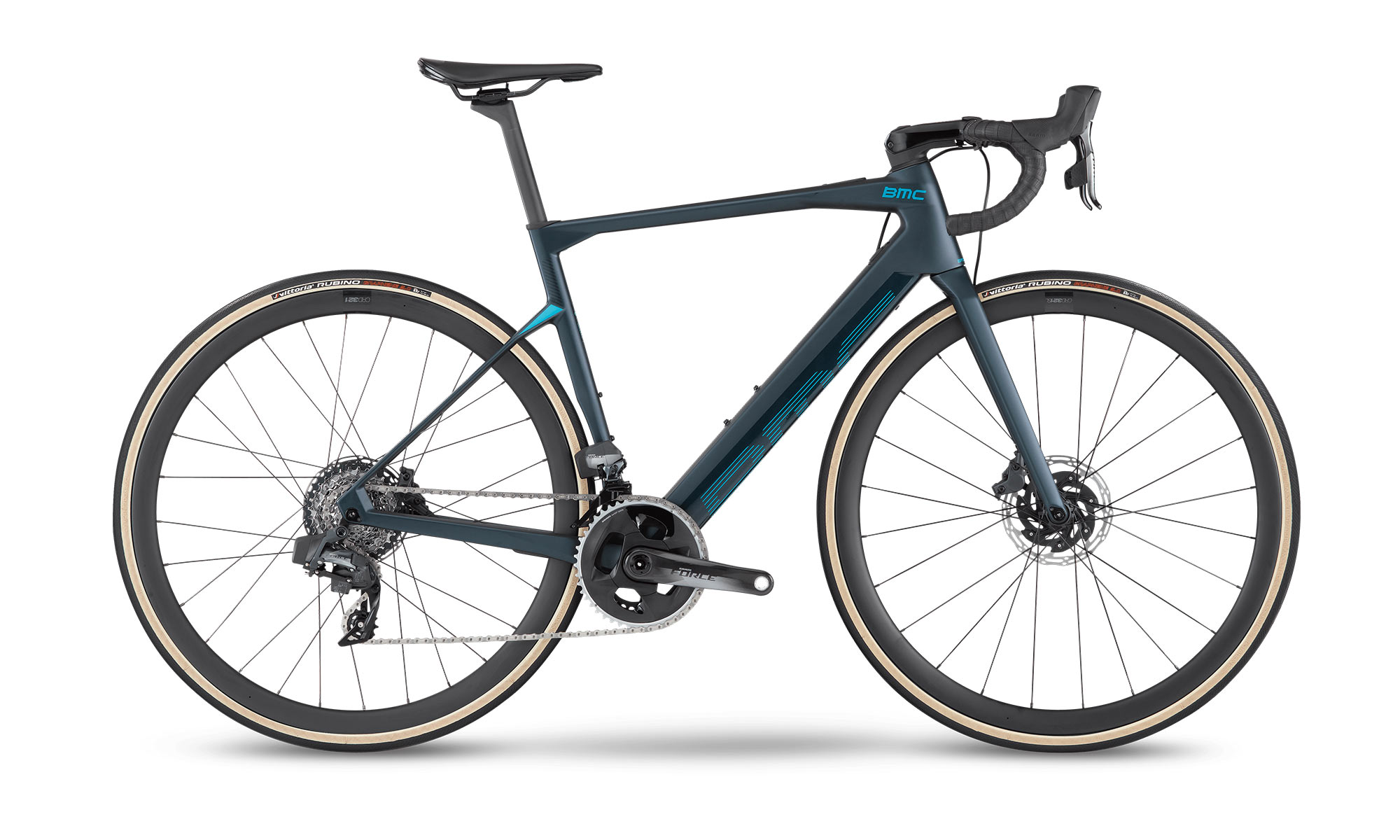
The new BMC carbon road e-bike is available in three stock builds.
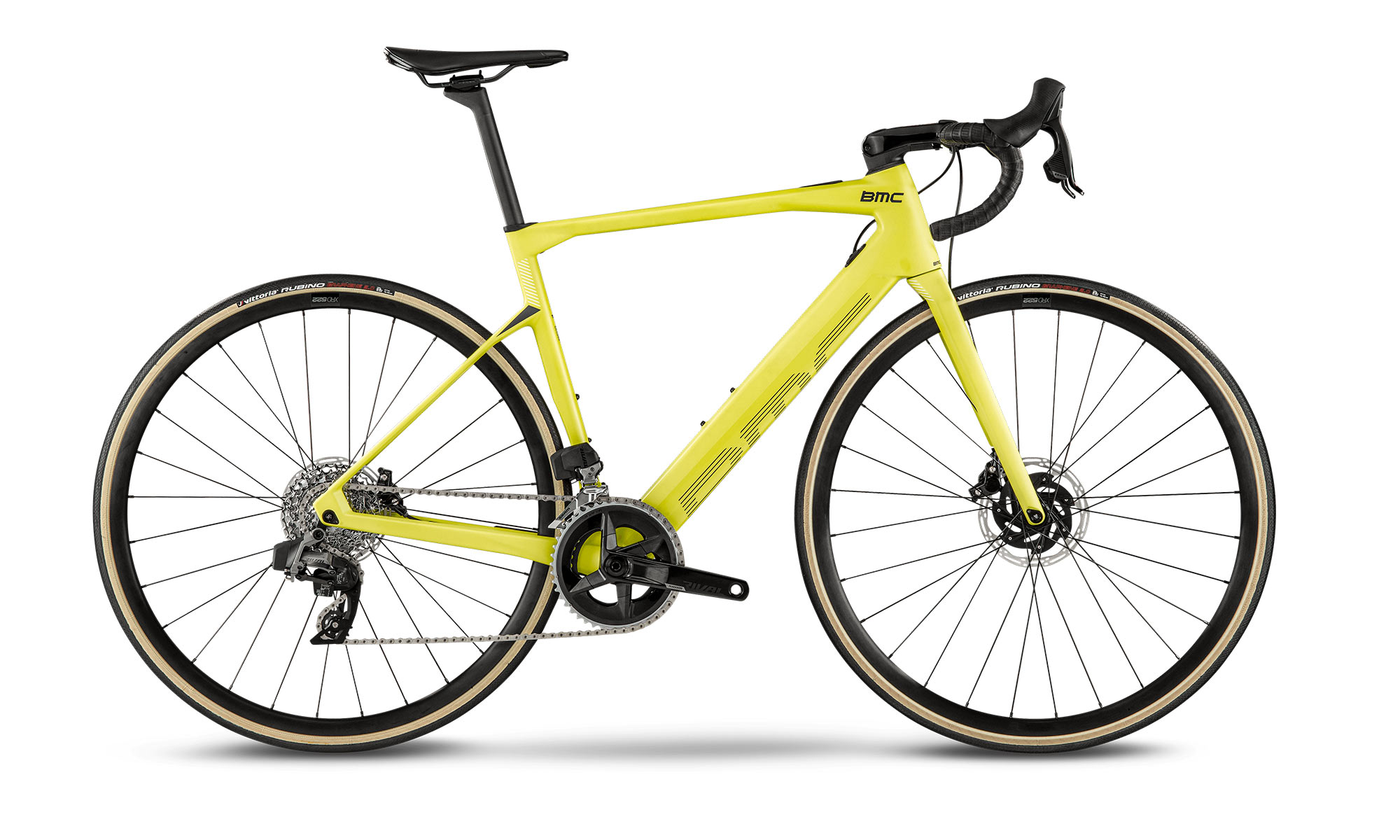
The first 8000€ BMC Roadmachine AMP One with SRAM Force AXS & 35mm deep carbon wheels and 7000€ Roadmachine AMP Two with SRAM Rival AXS & 25mm deep alloy wheels are both available next week.
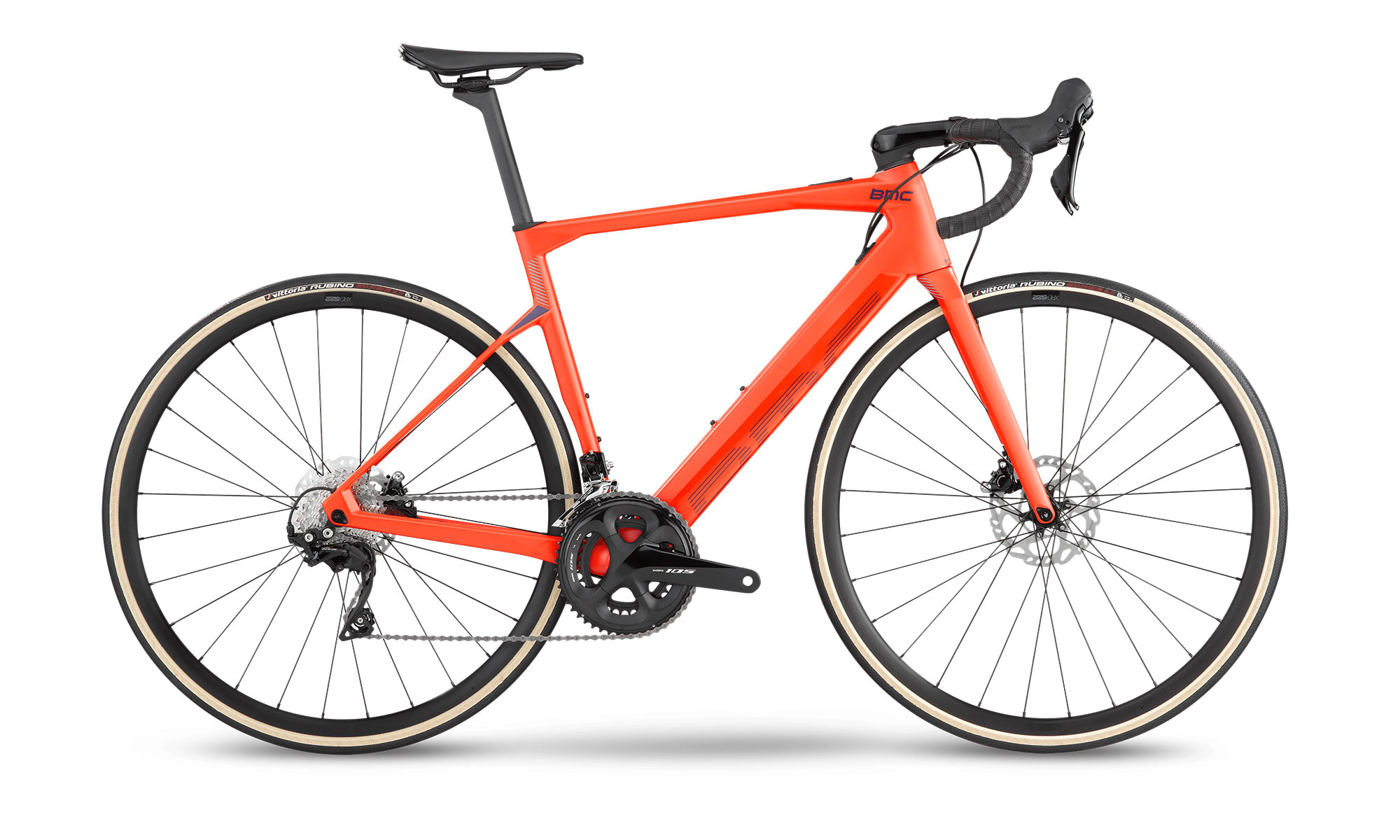
The 6000€ BMC Roadmachine AMP Three with Shimano 105 & alloy wheels will be available in August 2022.
With its higher pedal-assist limit, the USA market will only get the Rival equipped Roadmachine AMP Two for $7300, available in shops from November 2022.
First Impressions
At a real 12.26kg (27lb) for my 56cm BMC Roadmachine AMP ONE test bike with pedals, 2 bottle cage & out-front GPS mount, this isn’t quite the lightest e-bike ever. But with a bigger 350Wh motor than other lightweights, it really feels pretty light for an e-bike. Pointed uphill, even the lowest Eco mode gives a pleasant amount of extra support, while mid-level Trail mode makes it feel like you have a magical tailwind on the climbs.
On a lightweight dropbar e-bike, I often feel like it isn’t actually a lot easier, I can just push a lot faster up the climbs than I am used to. Riding with super-fit roadies that weigh 25-30kg less than me, the Mahle X20 system feels like an equalizer on the long climbs, even though it seems to reward me the harder I push & the faster I spin. Then, on the flats, I still have to put in the full effort as it’s super easy to spin up over 25km/hr. Luckily, the transition off of power is smooth (in Eco or Trail modes) and system drag is effectively non-existent.
The more natural the feel of riding a performance road e-bike becomes, the more sense it begins to make for riders who need that equalizer on the climbs. But you still have to work for it.
